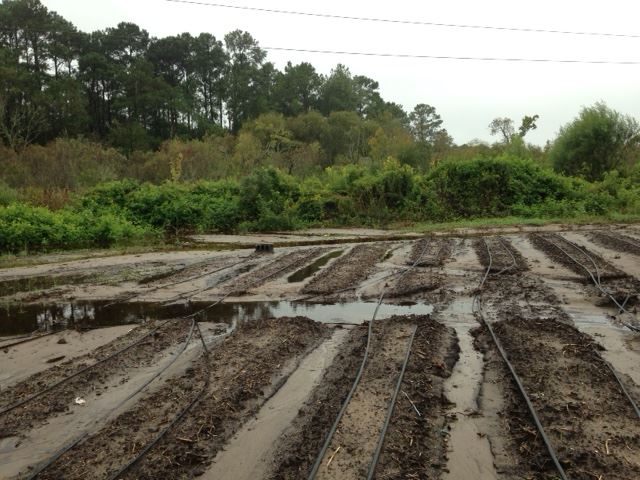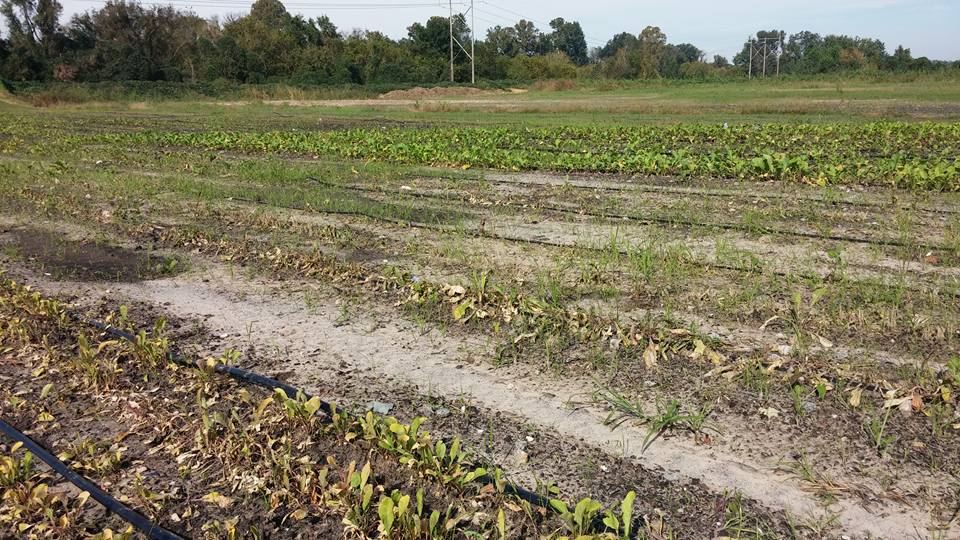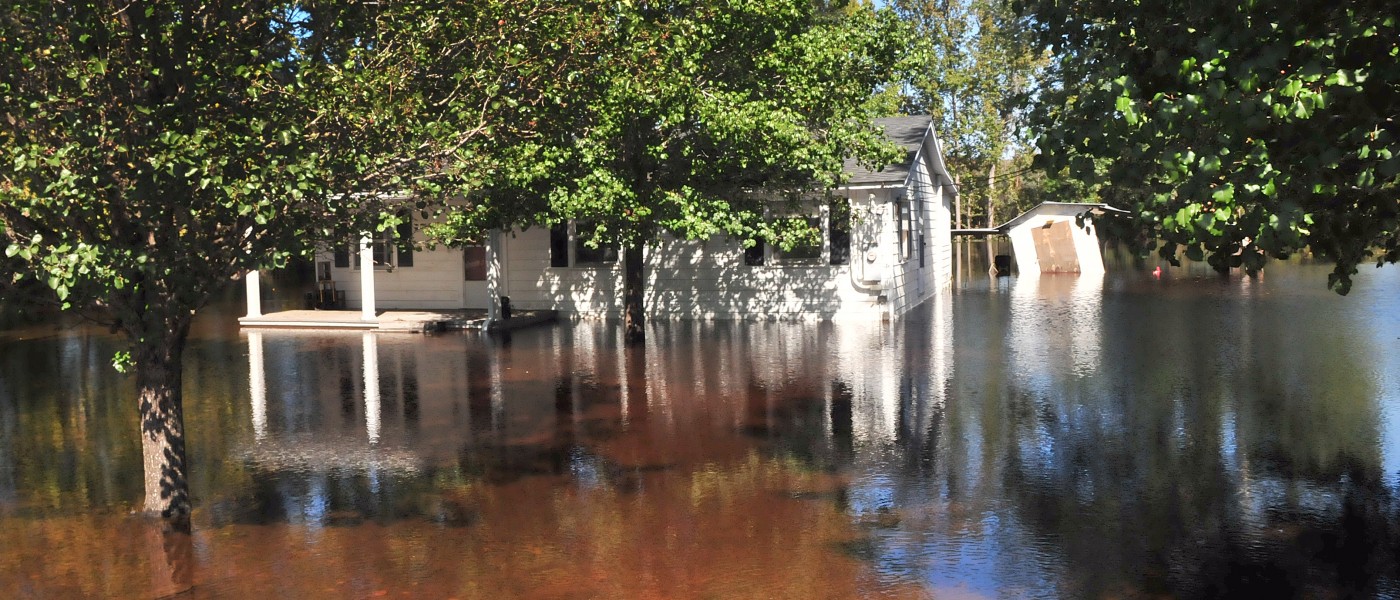Recent record rainfall and flooding in South Carolina has caused farm losses that could exceed $300 million according to early estimates. Since the historic rainfall during the first week of October, Farm Aid has answered calls from South Carolina farmers and service organizations. We have reached out to our partners on the ground in South Carolina and across the Southeast, to assess the damage to family farmers and identify the ways Farm Aid can help.
Small- and mid-sized, diversified family farms are especially vulnerable to natural disasters due to the way our crop insurance system operates. Subsidized crop insurance has traditionally served farmers who grow peanuts, cotton, corn and other commodities that have long been monitored and supported by the federal government. In South Carolina, where 81 percent of the state’s farms fall below the $20,000 annual sales threshold, and more than half of those farms generate less than $1,000 in annual sales, a large percentage of farmers cannot afford insurance coverage to reimburse them for their losses.
“I don’t have the money to replant right now. This feels like a deck stacked against me.” — David Crafton of Six Oaks Farm
But even if a farmer has crop insurance, it doesn’t cover the entire value of their lost crops, especially if they receive an organic premium. And crop insurance does not cover losses of equipment, fencing, soil and other infrastructure that are essential to the well-being of any farm. Flooding like what South Carolina farmers are experiencing can also delay planting of future crops, impacting farm income even after flood waters have dried up.
The emotional toll of disasters like this is hard to quantify but we know that many farmers suffer severe stress long after flood waters recede. In the immediate aftermath of a disaster, farmers are often mobilized into action, setting aside the hard work of getting through the emotional impact of a disaster until after they have addressed the immediate repairs needed on their farm. Mental health services to support these farmers are critically important.

South Carolina flood damage, photo courtesy of Lowcountry Local First
What Farm Aid is Doing
Farm Aid is partnering with a number of organizations who work on the ground with farmers in South Carolina, regionally and nationally, including Carolina Farm Stewardship Association, Clemson Cooperative Extension, Farmers’ Legal Action Group, Federation of Southern Cooperatives, GrowFood Carolina, Lowcountry Local First, Rural Advancement Foundation International-USA, and Sustainable Midlands.
In partnership with these organizations, Farm Aid is:
- Making emergency grants to farm families to cover household (non-business) expenses. A committee of local, farmer-based organizations is involved in distribution of funds to ensure that the money goes to farm families most in need.
- Creating a toolkit for farmer service providers to help farmers navigate farm recovery options, from mental health resources to federal funding opportunities.
- Developing a resource list for farmers impacted by this flood to help them understand their farm recovery options.
What You Can Do
Family Farm Disaster Fund
Make a donation to our Family Farm Disaster Fund to help Farm Aid assist South Carolina’s family farmers.
If you’re in the South Carolina area:
On Wednesday, October 28, attend the premier of the film Overalls & Aprons with a filmmaker Q&A in Charleston. Set in that city’s thriving food scene and culinary culture as America’s first cuisine, Overalls & Aprons joins ten acclaimed, passionate chefs on visits to their farm and fishery suppliers in search of quality ingredients. The film explores how one community is struggling to tackle economic, environmental and health concerns by sustaining a localized food system.
Proceeds of the screening event will go to Farm Aid’s Family Farm Disaster Fund to assist South Carolina farmers. Click here for more information about the film and the event.
After the Flood: Farmer Stories

Plants destroyed by flooding at City Roots.
Eric McClam of Columbia’s only organic farm, City Roots, held a fundraiser for flood victims immediately after the disaster before understanding that his farm was also a victim in need of assistance. He says, “Not only did we lose our field crops, but it’s the fertilizer, the seed, the labor, and time that it actually took to prepare, plant and cultivate these beds. We’ll see a 20% loss in yield at the end of the season, with damages around $40,000.”
David Crafton of Six Oaks Farm in Norway, South Carolina, has also suffered considerable losses due to the flood. David raises pastured pork, grassfed beef and market vegetables on 40 acres.
“I rotate my livestock and pastures, and after I rotate I reseed the pasture. I had just seeded 7.5 acres, and when the storm came, it washed out everything—both grass seed and other market vegetable seeds,” says David. “I don’t have the money to replant right now. This feels like a deck stacked against me.”
The flood follows a serious injury that put David in the hospital this past spring. The effects of this flooding on top of his already difficult year is very challenging. David explains, “Bigger farms are able to take in claims from FSA and other government programs. We really can’t. I don’t have collateral to take on additional debt right now. As an already struggling farmer, accessing emergency loans isn’t possible for me.”
Support the Family Farm Disaster Fund now


